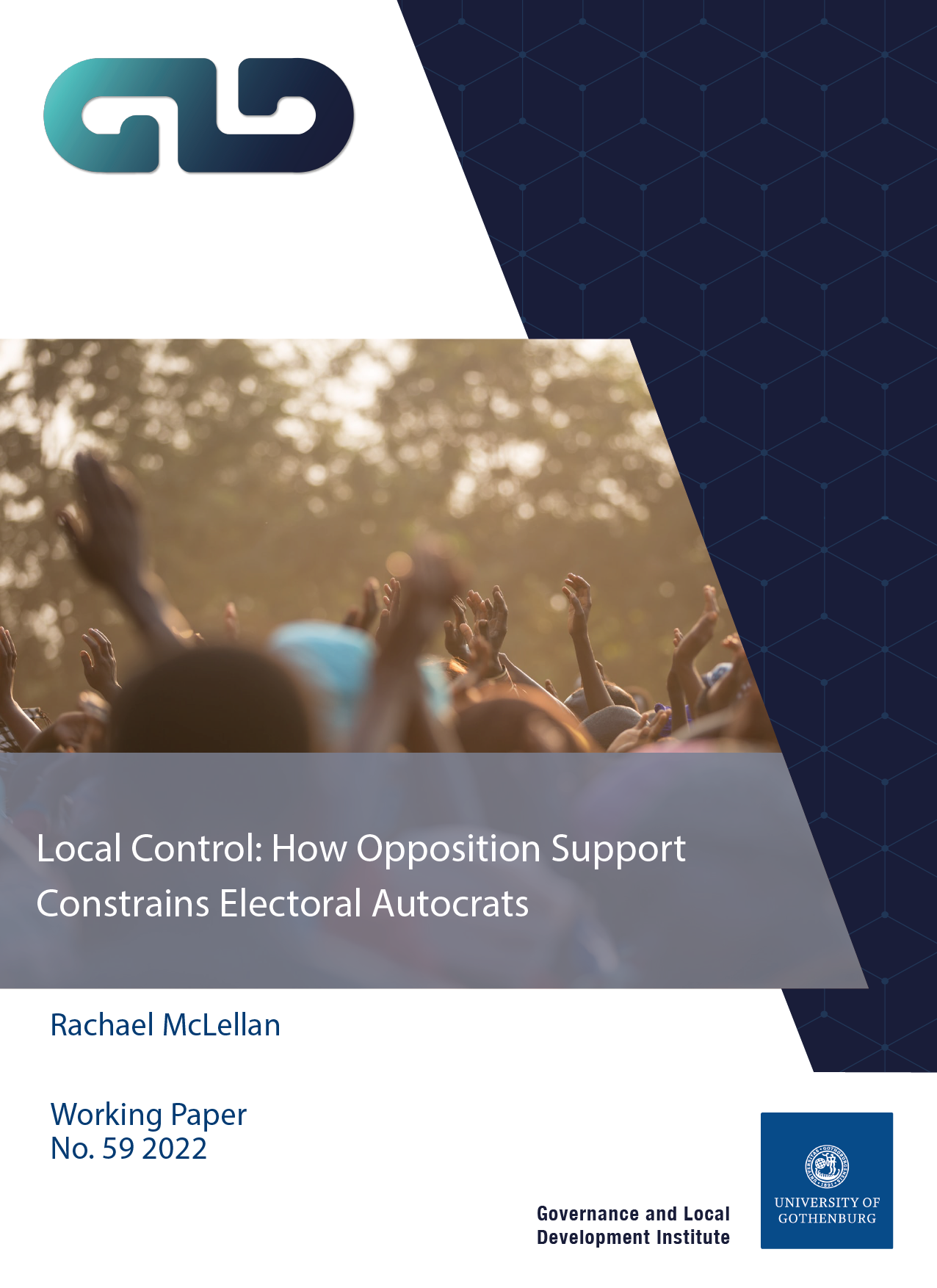No.59 Local Control: How Opposition Support Constrains Electoral Autocrats
Rachael McLellan
Abstract
Scholars conceptualize autocrats as central planners, constrained in how much they can distribute but not where. Autocrats use punishment regimes to sanction disloyalty. In many electoral autocracies, local institutions are the infrastructure of reward and sanction, a legacy of decentralization in the 1980s and 1990s. McLellan shows that autocrats face subnational constraints on their ability to enforce punishment regimes. Using administrative and electoral data, interviews, and a survey in Tanzania, she demonstrates that local control – who wins elected control of local institutions – determines the autocrats’ ability to punish opposition support. She shows incumbent local governments (LGs) punish opposition support while opposition LGs do so less. McLellan find that the extent to which opposition parties can disrupt or even flip the punishment regime depends on the level of de facto decentralization of the local public good in question. As a result, survey respondents in opposition LGs fear community punishment less, making it easier for them to vote on conscience. This suggests even small pockets of opposition support constrain autocrats. This study demonstrates the importance of subnational politics in the study of autocracy and suggests a more democratic legacy of decentralization than prevailing scholarship would suggest.
